Review for Confessions
Introduction
I've had a hundred percent appreciation of the films of Tetsuya Nakashima so far, although given that to date, only two have been released in the UK, that may not be as all encompassing a statement as it should be. But there was something about that first film, Kamikaze Girls that really appealed to me. There was a whimsical visual excess, a sense of pure fun and delight, and a profusion of colour and insanity that actually provoked me to triple dip in my search for a suitable version of the film. The same was true for the second film that I saw, Memories of Matsuko, a darker and more dramatic tale, which compensated by increasing the visual saturation, and introducing a musical element. A disappointing DVD was followed by a far more satisfying Blu-ray earlier this year. So you can imagine that I have been looking forward to his next film Confessions with an unhealthy avarice. This time though, it's a film that has threatened to break out of the niche market, getting the thumbs up from Film 2011 no less, and a 'limited' cinema release which actually has been more extensive than those given to the usual multiplex mainstays. I didn't take any chances this time; I went straight for the Blu-ray review disc.
A rowdy class of 13-year-olds and a dispirited teacher who has little interest in controlling them. For Yuko Moriguchi though, there is little reason to make an effort given that this is her last day as a teacher, and she's quitting the profession. But as she hands out the cartons of milk, she has one final lesson to impart to her students, and surprisingly given their unruly nature, they are soon paying rapt attention to what Miss Moriguchi has to say. Yuko Moriguchi has had more than her fair share of tragedy. She wanted to marry, but the man she loved discovered he was HIV positive, and then developed full-blown AIDS. Yet luckily the two managed to conceive and have a healthy and beautiful daughter, Manami.
To avoid the social stigma, she decided to raise Manami as a single mother, juggling work and home life, somehow making ends meet and making the time to dote on her daughter. That was until the day that Manami wandered away from the school infirmary, where she usually waited for her mother to finish work, and was found drowned in the school pool. It was ruled a tragic accident, but Yuko Moriguchi soon learned the truth. She knew that her daughter was murdered, and she knew that the killers were students in her class. She also knew that the country's lax laws on juvenile crime would mean that they would escape serious punishment even if they were prosecuted. So Miss Moriguchi decided to take justice into her own hands. As the class hears their teacher's confession, an elaborate retribution falls into place.
Picture
I know that this is only the third Blu-ray film I have seen from beginning to end, but if they all look this spectacular, I'm going to be increasingly lost for words when it comes to reviewing a disc's technical qualities. The 1.85:1 widescreen image is for want of a better word, perfect. The detail is astounding, black levels are strong and consistent, and the sheer beauty of the cinematography comes across with breathtaking accuracy. I know that comparing this to the few clips of the film on the extras DVD, soft and standards converted, exacerbated by being a DVD-R, is hardly fair, but given the choice between Blu-ray and DVD, it really is no choice at all. Tetsuya Nakashima opted to shoot certain scenes using a high-speed camera, and scenes of rainfall, of children blowing soap bubbles, of glass breaking, and of the film's dramatic climax really ought to be seen in high definition. Anything less just doesn't do it justice.
Sound
You have DTS-HD Master Audio Japanese, with optional English subtitles. The sound is vivid and engrossing from the off, with careful attention brought to the film's sound design. When just being in the classroom is such an immersive experience, with the jostle and chatter of the class surrounding the teacher as she moves through the room, then you can imagine that the rest of the film will be as equally well designed. That said, it isn't an overblown soundtrack, just subtle enough to remain beneath your conscious notice. The film gets the support of an eclectic selection of pop music, including a haunting track from Radiohead, most appropriate for the film's subject matter. The dialogue is clear throughout, and the subtitles are timed well and free of error.
Extras
The Blu-ray release will get all the extras on a second DVD, the same as the regular DVD. I received a DVD-R check disc for review, which probably didn't do the quality of the extras any good. Hopefully the final disc will be dual layer.
Your basic extras include the film's theatrical trailer, a Book Store Trailer, and 2 minutes worth of TV spots. You will also find trailers for 22 other Third Window releases, including the forthcoming Cold Fish. That's already around half an hour and more of footage, and the remainder of the extras takes it to past the two-hour mark, hence my hope for a dual layer disc.
Final Confessions is a 70 minute making of documentary, with interviews with the cast and crew, and a lot of behind the scenes footage, taken from the film's genesis all the way up to post-production and editing. But by far the greater portion of this documentary is given to an in depth conversation with director Tetsuya Nakashima, which makes this an invaluable addition to the film.
Real Confessions last 17 minutes, and offers brief interview snippets with the various young actors in the film, who portray the children in the class.
Conclusion
I came to Confessions armed with my sunglasses, fully prepared for another visual explosion on the same level as Memories of Matsuko or Kamikaze Girls, only to be confronted by monochrome. For Confessions and its sombre, more heart-rending subject matter, Tetsuya Nakashima eschews the colour and instead presents a vision that is predominantly black and grey, all shade and nuance. The opening sequence, as Yuko confesses to her class about what happened to her daughter, is a study in monotone. The class is absent of any colour, the school uniforms are black, the teacher is seen in silhouette, the light streaming through the windows is a pearlescent grey, and when the camera cuts outside the school, we see dark grey clouds gathering, presaging a storm. Oxymoronically, this is the most colourful monochrome I have ever seen in cinema. As the film progresses, little touches of colour return, particularly in flashback sequences, or when the emotion of the scene demands it, but by and large the look of Confessions is desaturated of colour, almost funereal in tone.
In another departure from what I have seen before, this vision from Nakashima has nothing like the same intensity, pace or energy of his earlier films as released by Third Window. Confessions is at its heart a revenge film. It's all about exacting retribution, and retribution so grand, so operatic, so Shakespearean, that it evokes sheer awe at the intricacy with which it unfolds. This is no simple burst of rage, but a carefully orchestrated downfall that is all the more satisfying as the target inflicts it upon him or herself. It's the sort of revenge movie that you see from Park Chan-Wook, films like Oldboy or more appropriately Lady Vengeance. But Confessions is nothing like those films. It's elegiac in tone, gentle paced, almost wistful. It's more a character study than an edge of the seat thriller, and each of the characters is imbued with ambiguity and uncertainty. It ensures that the audience sympathies are never certain, and you'll find that your opinions about the characters and their motivations shift as the film progresses.
It's hardly the most appropriate of subjects, infanticide committed by children, a topic that still has resonance in the UK particularly, but Tetsuya Nakashima approaches the subject honestly and sympathetically. He doesn't pull any punches with the material, but neither is the film at any point exploitative or salacious. In fact it does ask all the hard questions, why would children be driven to commit murder? That it even offers a few answers is a testament to the thought and depth of the script. We have an over protective mother, and a smothered child desperately trying to find an identity. At the other extreme we have a child abandoned by a mother more devoted to her career, yet trying desperately to earn back her love. We have a look at the intense situation in the classroom, children practically given free rein by lax laws, teachers unable to control them, and the relentless bullying that results. We have youth disaffected and alienated, with no role models but their peers, drawn to cults and extremes. And we have the tragedy of a mother grieving the loss of her daughter, and driven to commit a horrific and lasting revenge. And even till the last frame, it's hard to decide if she is right or wrong.
You'll have noticed that I have steered clear of discussing the plot in any significant detail. Confessions is one of those films that is best discovered for yourself, and indeed, it will probably offer something a little different for everyone who watches it. It isn't the most approachable of subjects, but Confessions is so deftly directed, so thoughtful and measured, and with such astounding performances, that watching the film is a stunning and unforgettable experience. If you have any interest at all in world cinema, then you mustn't deny yourself this film. It will be judged a classic in years to come.
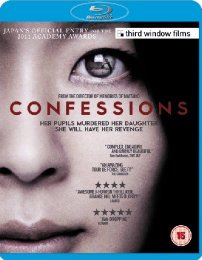










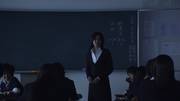


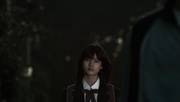

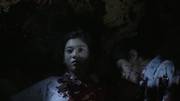
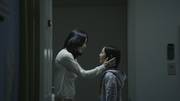


































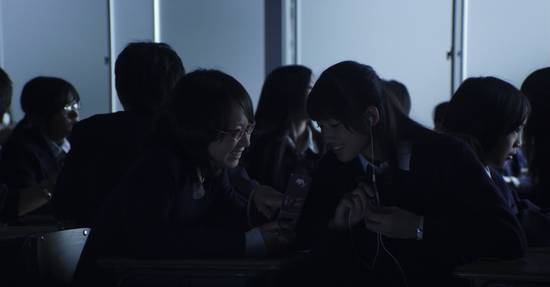
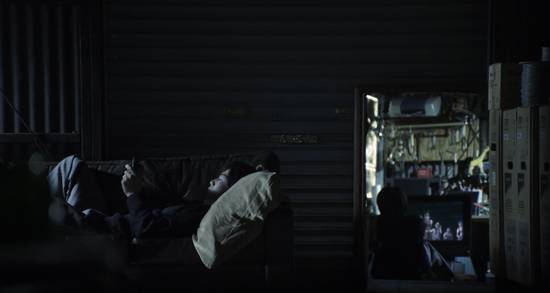

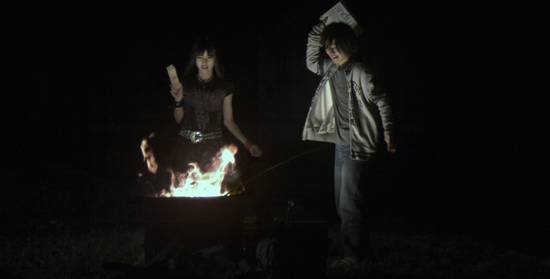


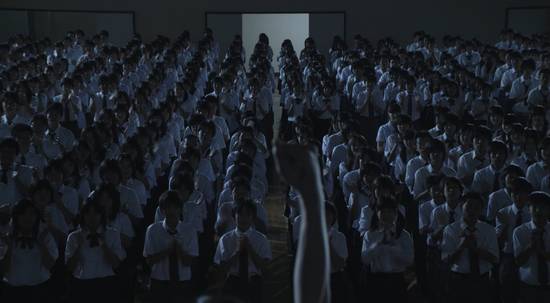
Your Opinions and Comments
Be the first to post a comment!